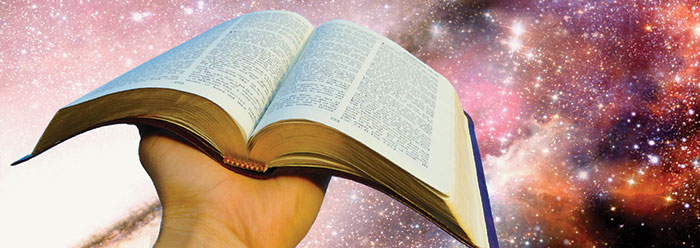Theology was once “the queen of the sciences,” but many in our increasingly skeptical society now regard it as a pointless field of study. After all, why study the Bible if it is merely a human work? Obviously, the study of God and His Word is meaningful only if God actually exists!
Since biblical skeptics claim that God doesn’t exist, they would argue that theology—unlike “real” disciplines such as physics, chemistry, and mathematics—makes no meaningful contribution to human knowledge. For example, physicist and professing atheist Lawrence Krauss states:
Indeed, I have challenged several theologians to provide evidence contradicting the premise that theology has made no contribution to knowledge in the past five hundred years at least, since the dawn of science. So far no one has provided a counterexample.1
Contrary to this assertion, counterexamples do exist. Not only is good, Bible-based theology essential for a proper relationship with our Creator, but it also contributes to our understanding of the natural world. Usually its contributions are subtle, but sometimes they are surprisingly direct.
The Christian worldview makes science possible.2 Because science relies on observation, scientific studies are pointless unless the information about the world provided to us by our senses is trustworthy. How do you know that what you are observing is truly real? How do you know that you are not actually a disembodied brain being fed electrical stimuli to make you think you are reading this article? Because God is faithful and truthful, we would expect our senses (which He created for us) to be generally reliable sources of information about the world around us. Likewise, with the relatively infrequent exception of miracles, one expects the universe to behave in an orderly, predictable manner, since “God is not the author of confusion” (1 Corinthians 14:33).
Good theology provided crucial insight that led to the discovery of conservation of energy, one of the most important laws in physics. Intuitively, we think of energy as the capacity to make something happen. This rule states that energy cannot be created or destroyed, although it can be transformed from one kind to another.
James Joule discovered that the amount of friction needed to raise the temperature of one pound of water one degree Fahrenheit consistently resulted from the same amount of mechanical work: 772 foot-pounds. This was an important step in the development of a formal statement of conservation of energy. In honor of his discoveries, physicists measure energy in units called joules. It is well known that Joule’s studies in this area were motivated by his theology.3 Joule, a devout Christian, stated his belief that only God can truly create or destroy:
Believing that the power to destroy belongs to the Creator alone I affirm…that any theory which, when carried out, demands the annihilation of force [today, we would say “energy”], is necessarily erroneous.4
So, contrary to Krauss’ assertion, theology (particularly good theology) makes practical contributions to our understanding of the natural world.5 The Lord Jesus Himself said, “A good tree cannot bear bad fruit, nor can a bad tree bear good fruit” (Matthew 7:18). That the Christian worldview led to modern science provides additional evidence for the use of theology in our modern age. A right understanding of God and our relationship to Him yields practical benefits in both this world and the world to come.
References
- Krauss, L. 2012. A Universe from Nothing. New York: Free Press, 144.
- Lisle, J. 2009. The Ultimate Proof of Creation. Green Forest, AR: Master Books.
- Weisstein, E. W. Joule, James (1818-1889). Wolfram Research. Posted on scienceworld.com, accessed March 7, 2016.
- James Prescott Joule. New World Encyclopedia. Posted on newworldencyclopedia.org, accessed March 7, 2016.
- It is ironic that Krauss (reference 1) attempts to find loopholes in conservation of energy so that a universe can come into existence without the need for a Creator. One can only wonder what Joule would have thought of this.
* Dr. Hebert is Research Associate at the Institute for Creation Research and received his Ph.D. in physics from the University of Texas at Dallas.





